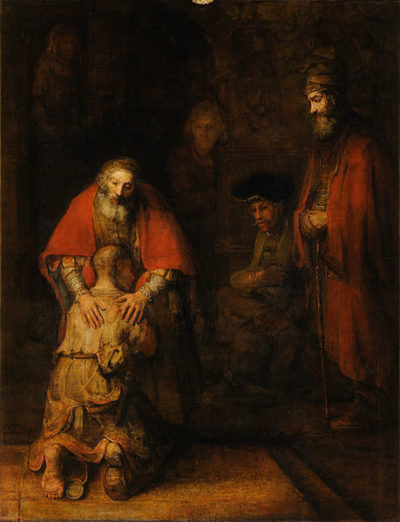I went back to my alma mater, Providence University College, today as the chapel speaker. It was at Prov as a freshman in 2006 where I first signed up for this ‘new thing’ called Facebook. I tried to find my first post, but it’s since been deleted. I remember it being something along the lines of “Michael Thom is wondering what the heck this Facebook thing is? Seems like a ripoff of MySpace. That’s where you’ll find me!” (Remember how you had to start every status with “is…”?)
Dr. Holm asked if I would speak on the Bible and my culture – specifically the Bible and media. Given that I work in media I thought it was pretty fitting and should be easy enough. But the more I thought about it, the more I thought about how media is changing.
Our consumption of media is changing rapidly – more than ever before.
The way we consume media has changed, and that’s changed the way we consume Scripture.
12 years of my life is documented on that ‘thing’ called Facebook now … It’s horrible. Especially if you go back to when my wife and I started dating and read our public posts to one another. Seriously horrible – some of the cheesiest stuff you will ever read.
But this is how much things change – at the chapel today I asked who had a Facebook account. Almost all the hands went up. Then I asked who still used that Facebook account daily. Five. There were five of us, and we were all well over 30.
12 years ago everybody was on it. Especially during class (except me of course).
But now we’ve moved on. Twitter came along. And then Instagram. And then Snapchat. And I don’t even really know what else anymore.
Media is no longer consumed only by the television, radio, or newspaper/or magazines. Heck, it’s barely consumed by those means now.
It’s consumed in the palm of our hand 24 hours a day, 7 days a week. And I think that’s changed the way we read Scripture.
The perfect example can be found in one of the most popular verses in evangelical Christianity … Jeremiah 29:11
Do you know it?
“For I know the plans I have for you,” declares the Lord, “plans to prosper you and not to harm you, plans to give you hope and a future.”
As of last night at 5:40 p.m. there were 92,802 pictures on Instagram with the hashtag Jeremiah 29:11
The number one picture was a dance team on a trip in Las Vegas that also included hashtag “blessed” … of course, right?
The next picture was a college football player in the United States – Arizona State University’s quarterback, Beau Barrington.
Actually, in the top eight posts with the hashtag of Jeremiah 29:11, two of them were about football in the United States.
Because God’s plan for the people of Judah who were in captivity in Babylon included helping the Arizona State Sun Devils beat the Arizona Wildcats 41-40 in an exciting rivalry game this past Sunday. Right?
There was also a picture of Thieves Oil on sale for Cyber Monday with the hashtag Jeremiah 29:11
… I don’t even … I can’t even try and make sense of that one.

And of course, there were countless pictures of oceans, mountains, desert landscapes, stars and galaxies … and with the text of the passage in beautiful cursive fonts over top of the scenery.
For I know the plans I have for you declares the Lord.
Plans to follow back, and double tap, and maybe even swipe right.
I think my favourite hashtag I found for Jeremiah 29:11 was on Twitter.
On Sunday night a woman tweeted: This is the day that the LORD has made I shall rejoice and be glad in IT! #Jeremiah2911
Please, nobody tell her that she quoted Psalm 118:24
Cherry-picking isn’t all bad … is it?
As media changes the Bible is everywhere and how it’s read is changing with it.
In the 80s when I was growing up if my mom read a verse that spoke to her, she might highlight it, write some notes in the margins of her Bible, and maybe even bring it up at a Bible study. Then there’d be some discussion at least.
Now we take our favourite verses and post them online.
It’s good, in the sense that Scripture is out there. Christians that find Scripture important are willing to share it. That’s good.
But at the same time, it’s dangerous because we’re taking Scripture out of context and giving it our own meaning.

Jeremiah 29:11 IS an amazing passage.
It’s tweet-worthy – it really is. But it is tweet-worthy, shareable, and likeable because of what the passage really means.
The passage is a promise of restoration and redemption … after repentance.
And it’s a promise not to an individual, but to a group of people. It’s a response that God delivered to the people through his prophet Jeremiah after they had listened to the lies of a false prophet.
Hananiah was prophesying before priests and the Israelites that the Lord will deliver Israel from Babylon in 2 years time (Jeremiah 28:1-4). The man lied to the people – told them what they wanted to hear – and gave them false hope.
We’ve been using the Bible in media as a quick fix
The truth was they would be punished in exile, but then they would also experience redemption and renewal … after 70 years.
For I know the plans I have for you declares the Lord.
And then he continues in verse 12 – Then you will call on me and come and pray to me, and I will listen to you.
Verse 13 – You will seek me and find me WHEN you seek me with your whole heart – in other words, full obedience to God.
‘I will be found by you,” declares the Lord, “and will bring you back from captivity.
After 70 years, though.
Again, I’m not saying that the pretty pictures and fonts with Scripture are bad. I make them for work sometimes and post them on our Instagram – our audience likes them.
But I think as Christians, in a way, we’ve been using the Bible in media as a quick fix.
Our media consumption is instant now – reporters worry about who will be the first to tweet something. Never mind the facts, we’ll get to that later, so long as I’m first. We want to share incredible events we experience as they happen, and the response from people is instant too.
So I think that also affects our use of Scripture.
In some ways, at times our culture and our media are guilty even of acting a lot like Hananiah in the story of Jeremiah.
Hannaniah promised a quick fix. And that’s what we so often want. A quick fix, and quick likes. We cherry-pick verses so that we can tell our followers what they want to hear – or see what they want to see. And so I can get some retweets and likes. (Follow me @reverend_thom by the way)
But we see so often in Scripture that God isn’t about QUICK fixes – he’s about PERMANENT fixes.
Tweeting & tweaking the text
But it’s not just individuals on social media. I see Scripture misused and twisted in Christian media as a whole all the time. I won’t even get started on Christian news sources here in North America.
One of the catchiest songs in Christian contemporary music right now is by a band called Sidewalk Prophets (actually it came out in 2015, but that’s how catchy it is – I still haven’t gotten sick of it).
They’re great guys, with great hearts, and a great ministry.
The name of the song is ‘Prodigal.’
Overall the message – the theme of the song is great. It’s encouraging people, no matter how far you’ve wandered from God to come back to his loving arms
The first verse starts:
It’s been a long time since you felt peace
In the valley you made where you’re not meant to be
Where the shame throws shadows on you
And it keeps going and builds to the chorus:
Wherever you are, whatever you did
It’s a page in your book, but it isn’t the end
Your Father will meet you with arms open wide
This is where your heart belongs
Come running like a prodigal
Come running like a prodigal
It’s a nice song – it paints an amazing picture …
But there’s a problem with the chorus – “Come running like a prodigal.”

In the story of the prodigal son in Luke 15, it’s not the son who comes running home.
He’s spent all his money in “wild living,” and is now feeling the effects of famine, and realizes that even the pigs are eating better than him. And so in shame, he begins the journey to his father to ask to become one of his servants.
“But while he was still a long way off, his father saw him and was filled with compassion for him; he ran to his son, threw his arms around him and kissed him.”
Now singing “come running like the prodigal’s father, come running like the prodigal’s father” wouldn’t sound very good, and wouldn’t be a great hook – wouldn’t be something that gets stuck in your head.
So they tweaked it. Just tweaked the text a little so it would fit better. I think we really need to watch out for that. I’m not knocking them for doing it
… I’m more worried about how I do that myself. Whether on social media, or in my own writings, or even worse, when I’m on the air talking to tens of thousands of people. I just tweak the text to make it work; to make it fit into Twitter’s character limit; to make it more appealing; to make it about … me.
We need to be thoughtful and careful of what we do with Scripture.
Media & culture often gives us a sense of community, but it can be a false sense – it can often make it all about ME rather than all about US.
What happens then is that we make salvation out to be individualistic.
For God so loved Mike Thom that he sent his only son …
No, for God so loved the WORLD.
There’s a great story of repentance and redemption for all of creation in the Bible that needs to be told.
And now as media changes at an amazing pace, and each of you holds in your hand an ability to influence that media & culture, and have a voice that was impossible to have 20 years ago, we have the privilege of ensuring the right story gets out there.
Jeremiah 29 is a story of repentance and then redemption.
Luke 15 and the prodigal son is a great story of repentance and then redemption. With the gracious, extravagant love of a father that brings shame on himself and runs to meet his son and shower him with merciful forgiveness.
We can hashtag “blessed” every picture we put out there, and every story we tell in 280 characters or less. Go ahead, and do it.
But we should also take every opportunity we can to tell the full story
#historicalculturalcontext maybe doesn’t sound very trendy (unless you’re a hermeneutics professor).
But it is important – the context.
The FULL story of Scripture is important.
The un-hashtagged story of Scripture…
Everyday there are more and more people who don’t know the REAL story of the Bible.
You can tell that story, now, with #nofilter.

